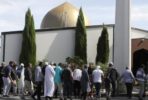When the Prophet Muhammad migrated to Madina he was surprised to find the Jewish community fasting on a day known as ‘Ashura’, which fell in the Arabic (later Islamic) month of Muharram. During his life in Makkah, the Prophet used to observe a fast on this day. When he asked them why they fast on this day, the Jewish community replied that it was in celebration of Moses’ deliverance from Pharoah. The Prophet told his community that they too were believers in Moses and were deserving of commemorating the momentous occasion of his deliverance. Without questioning the authenticity of the date, despite the Hebrew calendar being different to the Arabic, the Prophet accepted their reason and instructed his community to observe the fast too. Acknowledging a sacred event is not related to the time of its happening as much as it is related to its meaning, which is to celebrate it in joy of God’s favours and love for the righteous.
Maintaining a connectedness to religious occasions that are intimiately tied to sacred symbols is common in Islam and deeply connected to faith. Hajj, the annual pilgrimage, is the fifth pillar of Islam and replete with these meanings. For example, the circumambulation of a House built by Ibrahim and his son Ismail; the walking between Safa and Marwa where Hajar went on her search for water for her infant child; the throwing of stones in Mina where the devil tried to tempt Ibrahim away from sacrificing his son; and the ritual slaughter that marks the willingness of Ibrahim to sacrifice his son for God. This is the greatness of religious rituals; that they are forms imbued with profound meanings and not simply actions which are meant to be ritually repeated.
The Quran tell us: “And remind them of the days of God; indeed, in them are signs for those who are forbearing and grateful.” As we approach the occasion of Jesus Christ’s birth, we feel that we are confronted with a day from among the ‘days of God’. This day was distinguished by an immense miracle related to his birth. This birth was connected to meanings of peace that we are in dire need of today.
Yes, God made Jesus Christ a symbol of peace for this world.
Did the Quran not inform us of Christ’s words, “Peace was upon me the day I was born, and will be on me the day I shall die, and the day I am raised to life again.”? These words alone are sufficient enough as a reason for our joy on this noble occasion, irrespective of its exact date and the differing opinions that exist among Christian denominations. The birth of Jesus Christ is less about the precise date and more about the meaning embodied in his emergence into this world.
I offer my greetings to the Prophet Muhammad on the birth of Jesus Christ, who affectionaly described the son of Mary as his brother and said of him, “I have the best right to Jesus son of Mary in this world and the next.”
Likewise, I offer my greetings to Muslims, Christians and humanity at large on this blessed occassion.
And I say to Jesus Christ: my master, the spirit of God and His word, peace be upon you the day you were born, the day you shall die and the day you will be raised to life again.
Source: www.huffingtonpost.com







